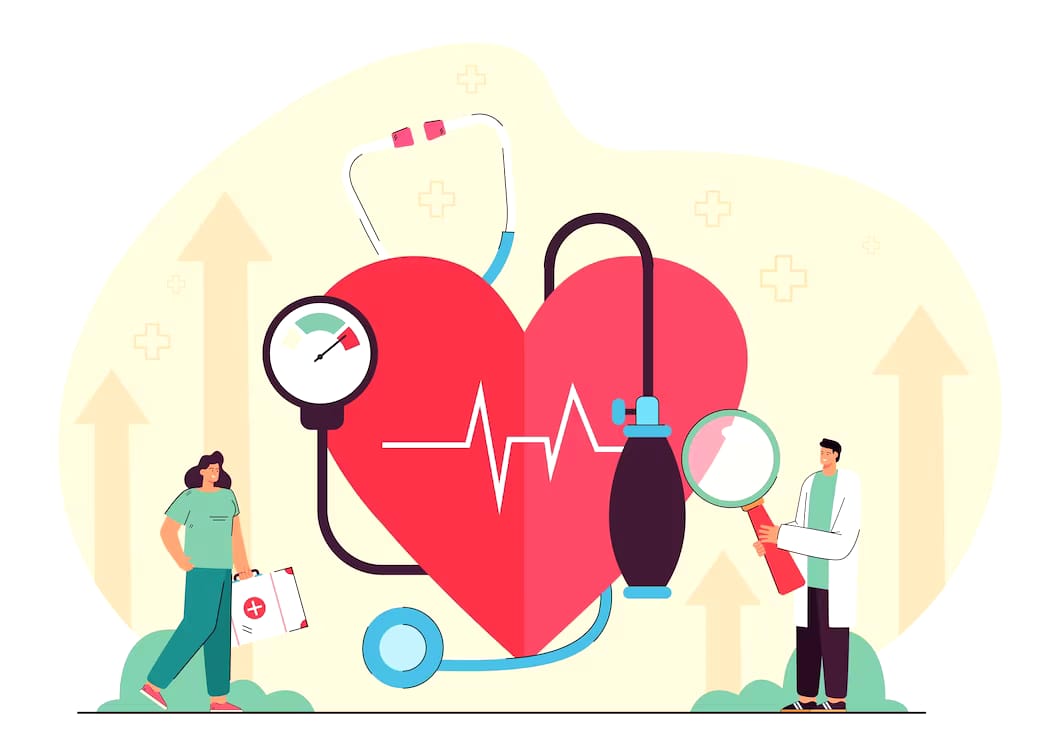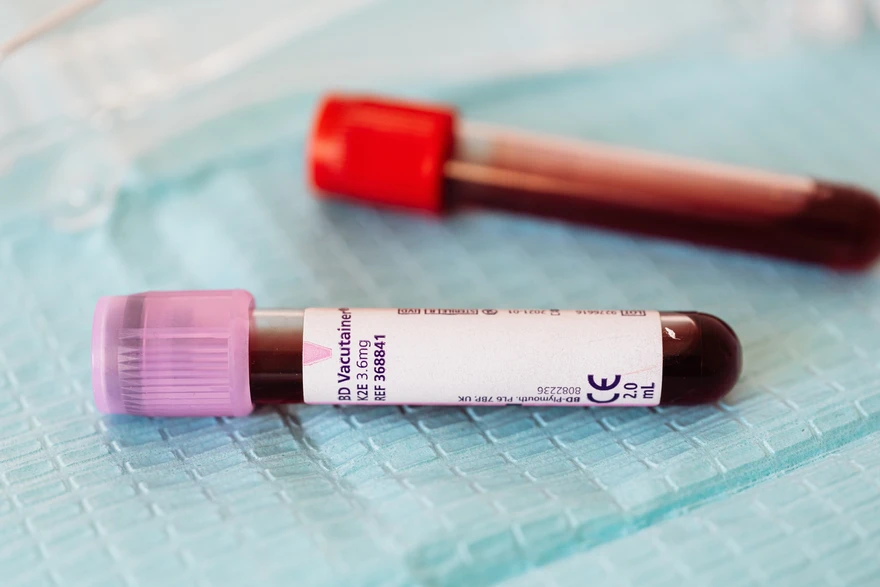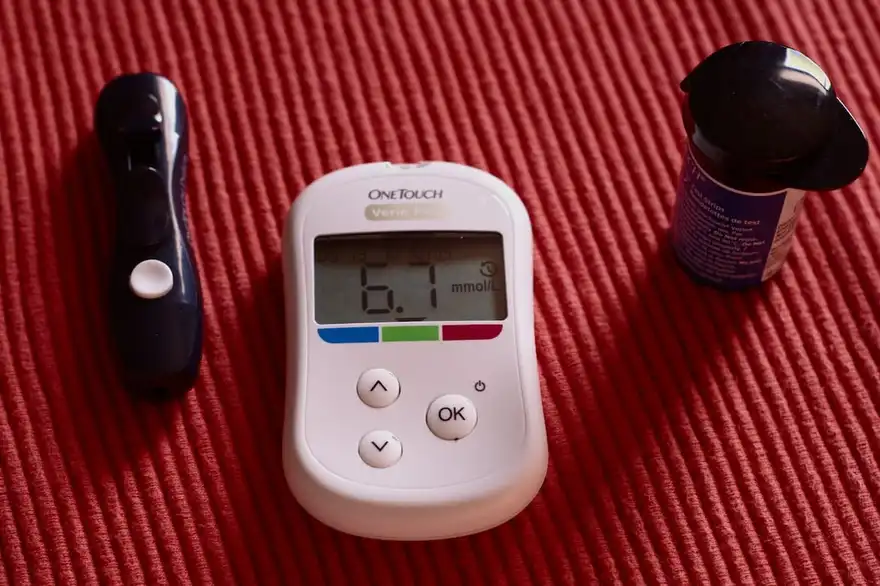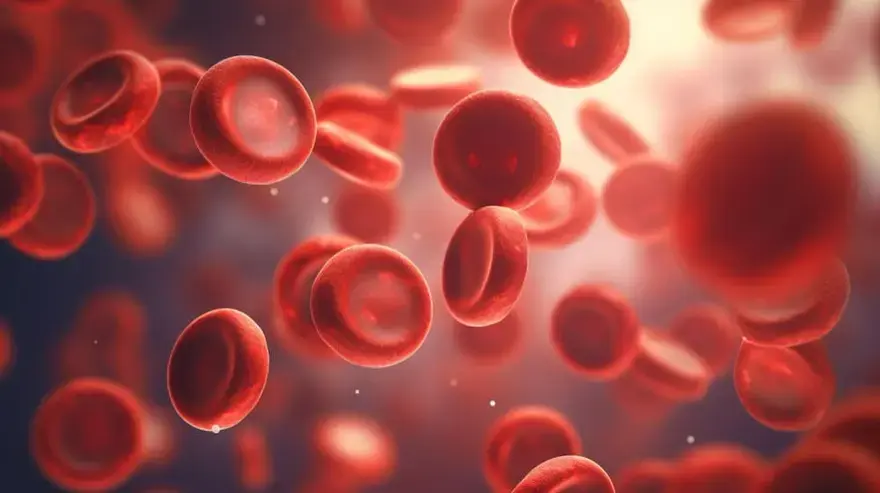LDL cholesterol
What is LDL Cholesterol: Levels and How to Lower It
Are you worried about your cholesterol levels? If so, you're not alone. High cholesterol is a common health concern for many people, and LDL cholesterol is often the main culprit. LDL cholesterol, or "bad" cholesterol, can increase your risk of heart disease and stroke if left unchecked. There are plenty of things you can do to lower your LDL cholesterol levels naturally. In this blog post, we'll give you an overview of what LDL cholesterol is, the risks associated with high levels of it in your body, and some tips on how to reduce it through simple lifestyle changes and dietary adjustments. What is LDL cholesterol? LDL cholesterol, also known as low-density lipoprotein cholesterol, is a type of cholesterol that can build up in the walls of arteries and contribute to heart disease. The liver produces cholesterol, which is a waxy substance that is present in some foods. LDL cholesterol travels through the bloodstream attached to proteins called lipoproteins. When there's too much LDL in your blood, it can start to accumulate on artery walls, forming plaques that narrow the arteries and reduce blood flow to vital organs like your heart and brain. This buildup of plaque can increase your risk of serious health problems such as a heart attack or stroke. That's why it's important to keep track of your LDL levels and take steps to lower them if they're too high. What are the risks associated with LDL cholesterol? When LDL levels are high, it increases the likelihood that cholesterol will stick to arterial walls, leading to atherosclerosis (hardening and narrowing), which restricts blood flow. The higher your level of LDL in your bloodstream, the greater your chance of developing cardiovascular disease. High levels of LDL may lead to conditions such as angina (chest pain), peripheral artery disease (PAD), or even sudden cardiac arrest due to coronary heart disease. Research suggests that individuals with diabetes have an increased risk of cardiovascular disease when their bad cholesterol levels are elevated. Fortunately, by making lifestyle changes such as exercising regularly, eating healthy foods rich in fibre, and avoiding unhealthy habits like smoking or excessive drinking, one can lower the risks associated with high LDL cholesterol. How can you lower your LDL cholesterol levels? Lowering your LDL cholesterol levels is essential to maintaining good heart health and preventing cardiovascular diseases. There are several ways you can lower your LDL cholesterol levels naturally without medication. Firstly, maintaining a healthy weight through regular exercise and a balanced diet can help reduce the amount of LDL cholesterol in your body. You should aim for at least 30 minutes of physical activity each day. Secondly, eating foods that are high in fibre, such as fruits, vegetables, whole grains, oats, and legumes, can also help lower LDL cholesterol levels. Foods containing omega-3 fatty acids, such as salmon and walnuts, can also be beneficial. Additionally, limiting saturated fats found in animal products like meat and dairy while reducing trans fats, which are commonly found in fried food or baked goods, is crucial to controlling high cholesterol. Quitting smoking will not only boost overall health, but it is also an effective way to manage unhealthy blood fat levels, including decreasing the level of bad (LDL) cholesterol. Foods to eat to lower LDL cholesterol When it comes to lowering LDL cholesterol levels, the food you eat plays a significant role. Here are some foods that can help lower your LDL cholesterol: 1) Oats and oat bran: These contain beta-glucan, a type of soluble fibre that helps reduce LDL cholesterol. 2) Fruits and vegetables: Rich in antioxidants and fibre, fruits and vegetables can help decrease inflammation and improve heart health. 3) Nuts: Almonds, walnuts, pistachios, and other nuts are high in monounsaturated fats, which have been shown to reduce LDL cholesterol levels. 4) Legumes: beans, lentils, peas, and chickpeas are all excellent sources of protein without the saturated fat found in animal products. 5) Fatty fish: Salmon is an excellent source of omega-3 fatty acids, which can lower triglycerides as well as protect against heart disease. 6) Whole grains: Brown rice or quinoa instead of white rice or pasta provides more fibre, which helps keep you full longer while reducing your risk for heart disease. Making small changes to your diet by incorporating these foods into your meals can make a big difference in lowering your LDL cholesterol levels naturally. Tests for LDL cholesterol One common test is a lipid panel, or lipid profile, which measures not only total cholesterol but also separate measurements for HDL (good) and LDL (bad) cholesterol. Another test called apolipoprotein B (apoB) measures the number of low-density lipoproteins in your bloodstream. By knowing your LDL cholesterol levels, you can take steps to lower them through lifestyle modifications such as eating a healthy diet, exercising regularly, quitting smoking, reducing alcohol intake, and taking medication when necessary. Remember that high levels of LDL cholesterol significantly increase the risk of heart disease. If you have any concerns about your LDL cholesterol levels or other aspects of your heart health, consult with your healthcare provider so that they can guide you on how best to manage them. Conclusion LDL cholesterol is a significant factor when it comes to the risk of developing heart disease. High levels of LDL cholesterol in the bloodstream can lead to a buildup of plaque in the arteries, which can cause blockages that may result in heart attacks or strokes. Fortunately, there are ways to lower your LDL cholesterol levels through lifestyle changes such as eating healthy foods and increasing physical activity. It's important to work with your healthcare provider to develop a plan tailored specifically for you. Regular testing and monitoring of LDL cholesterol levels are essential to maintaining good heart health. You can book a home visit with Metropolis Labs and monitor your LDL cholesterol levels. By understanding what LDL cholesterol is and how it affects your health, you can take steps towards maintaining healthy levels and reducing your risk of heart disease.
Heart Health: Insights into Heart Disease and a Heart-Healthy Diet
Coronary heart disease is a major cause of death around the world. About half of cardiac arrests and most strokes happen to individuals whose cholesterol levels are normal. Cholesterol alone is not a good way to tell if someone will have a stroke. Today, a lot of healthy people die young. Most of them don't know their family history as a risk factor for early heart disease. This can put them at risk. In an exclusive interview with OnlyMyHealth, Dr. Ravi Kumar H.N., VP and Senior Pathologist at RV Metropolis Lab in Bengaluru, shares some tips on how to keep your heart healthy. He says that many new tests, such as coronary risk profiles, are available. However, people do only cholesterol or Lipid profile tests and take it for granted that they are normal. Numerous other factors contribute to early heart attacks. These include obesity, lack of regular exercise, quality sleep, sedentary lifestyle, poor eating habits, anxiety, stress, smoking, high blood pressure (BP), and diabetes mellitus (DM)." How to Maintain a Healthy Heart? When it comes to maintaining a healthy heart, there are three key factors that you need to keep in mind: high blood pressure, diabetes, and your family's health history. Here's a closer look at each of these factors: High blood pressure is one of the leading contributors to heart disease. To manage your blood pressure levels effectively, you should aim for a balanced diet that is low in sodium and saturated fats. Regular exercise can also help lower your blood pressure over time. Diabetes can damage the arteries and increase the risk of developing heart disease. If you have been diagnosed with diabetes or prediabetes, make sure that you manage it carefully by eating a healthy diet and exercising regularly. Knowing your family's health history is crucial as genetics play an important role in determining your risk for developing heart disease. If there are any instances of heart disease within your family then make sure that you inform your doctor about this so they can monitor you more closely. By taking steps to control high blood pressure levels, managing diabetes carefully and keeping track of your family's medical history, you can maintain your cardiovascular health over time! The Role of Cholesterol in Maintaining a Healthy Heart Cholesterol is a waxy, fat-like substance that is essential for the proper functioning of your body. However, having high levels of cholesterol in your bloodstream can increase your risk of heart disease and stroke. There are two types of cholesterol: LDL (low-density lipoprotein) and HDL (high-density lipoprotein). LDL cholesterol is often referred to as "bad" cholesterol because it can build up in the walls of arteries, leading to cardiovascular problems. HDL cholesterol, on the other hand, is known as "good" cholesterol because it helps remove excess LDL from the bloodstream. To maintain your heart health, it's important to maintain a balance between these two types of cholesterol. You can do this by maintaining a healthy diet low in saturated and trans fats and high in fruits, vegetables, whole grains, and lean protein sources like fish or chicken breast. If you have high levels of bad cholesterol despite making dietary changes, medications such as statins may be prescribed by your doctor to lower your risk for heart disease. It's important to speak with your healthcare provider about any concerns you may have regarding managing your blood lipid levels. The Role of Homocysteine in Maintaining a Healthy Heart Maintaining a healthy heart is essential for leading a happy and fulfilling life. By taking care of your blood pressure, managing diabetes, and being mindful of your family's health history, you can go a long way in preventing heart disease. But it's not just about these factors alone. You also need to pay attention to cholesterol levels and the role that homocysteine plays in maintaining a healthy heart. Homocysteine is an amino acid found in your blood that can damage your arteries when its levels become too high. This damage can lead to blockages and increase the risk of heart attacks or strokes. Maintaining lower homocysteine levels through diet or supplements such as folic acid, vitamin B6, or B12 may help reduce this risk. Conclusion Maintaining your heart health requires commitment and effort. Following a balance between good and bad cholesterol is ideal for a good and healthy heart. It is also essential to maintain healthy homocysteine levels. It takes more than regular exercise and eating right; it demands consistent monitoring of all aspects of your lifestyle along with medical intervention when necessary. But by making small changes over time, like cutting out processed foods or reducing stress levels, you can improve the overall quality of life while mitigating risks associated with cardiovascular disease!
 Home Visit
Home Visit Upload
Upload














1715579024.webp)

 WhatsApp
WhatsApp